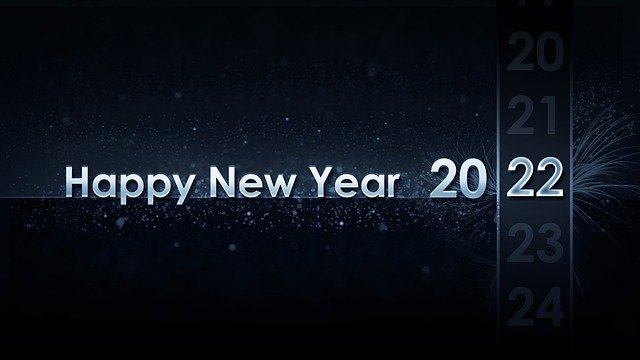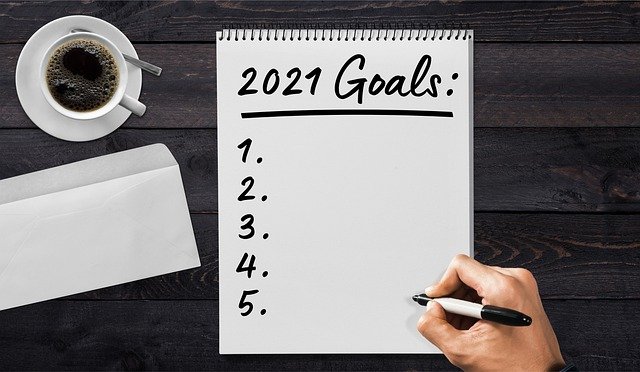Tag: New Year's Resolution
What can help you become the New You in the New Year?
by Nathan Chua
It’s that time of year again when many of us set out to become better people. We all have this internal yearning to be the best versions of ourselves. I often use the term our existential angst, a concern that we have not been living up to what we hoped to be. What do we want to be? A kinder friend? A more responsible husband? A more fun-loving person? Much of the troubles we feel have much to do with thoughts surrounding the people we strive to be and what our current reality indicates.
But what if this striving can start instead from a very simple skill that we can learn? Maybe the question could be phrased as what is it that we could get better at, rather than what we could be. Nothing is more demoralizing than realizing that even with all the work we try to do in becoming a better person, we fail. Why is this so? For one, our minds are very good at naming things we can or can’t do when faced with different circumstances. It feels like there is an upper limit to what we can or cannot achieve. It could be someone or something that could potentially stand in the way of such goals that keeps us from doing better.
Here’s a very simple tip on what to be better at this coming year in order for you to take some steps towards your most coveted aspirations. It’s so simple you might think it’s silly. Be better at: noticing. That’s it! It’s your first step towards making the change you’ve always seemed unable to reach. It could be hard at first but you and I can get better at it, if we practice.
But you might ask, what is there to notice? What should I notice? Should I start noticing what shirt my workmate is wearing everyday? Of course not. Firstly, notice what you tend to do when something happens and then notice the results of what you do. If what you do doesn’t help your relationship with your spouse then start noticing those that do. If what you do doesn’t give you the hardworking, addiction-free child that you want, then start noticing those that do. Notice what works and doesn’t work for you and your relationships.
Then notice what goes on inside of you when these challenges come along. Notice it just for what they are. Then notice what your mind tells you they are. Are there any judgments against those very feelings that make you and I, very human? And notice also how long these feelings last. Are they there permanently? Or do they come and go as they please?
Then notice what, in those moments, are most important to you. Here is where maybe your list of becoming can come along handy. Whatever our role in life is right now, we want to see ourselves becoming the best we can be in those roles. You and I can be a spouse, partner, friend, sibling, parent, child, and so on. In every situation that presents some kind of challenge to your emotional stability, go back to what you think will be representative of how you would have wanted to handle the situation. Go back to noticing the probable consequences when you do what you do, then notice what it is that goes on inside your thoughts and feelings as you experience these challenges, and finally, notice what is important for you in the moment. Then choose your best or better course of action from there.
And why notice? If you have gone through numerous self-help books or articles lately, I think that’s what the fuss about mindfulness is. Yeah! Simply put, mindfulness is really mostly about noticing! So just start noticing more this new year. And may I go just a step further. Maybe that’s what you go to see a counselor for, to become more noticing or mindful. Try and see for yourself and notice what wonders more noticing can do for you and the people you love. Happy New Year everyone!
Facing the New Year with Awareness, Courage, and Love
by Nathan Chua
The title of this post is not an original, at least the part that counts most. Many times in my graduate studies, I had wondered what, bottomline, counseling was about. I mean, what is it basically that we are trying to accomplish? At some point in my graduate studies, I thought it was forgiveness. It turns out that I will find an answer to this in my readings of Kevin Polk and his co-authors. It’s about helping clients to become more aware, to act courageously, and to do so lovingly.
Let’s take them one at a time.
Awareness:
Much of what we regret doing stems from acting in ways that are automatic. How often have we seen people commit homicides in this country, only to see them realize that they had lost control over their actions for a split second? There was even a case of a police officer who had a sterling record of service, who now has an indelible audiovisual account of him shooting a hapless middle-aged woman dead. His promising career that took him years to build was upended by a brief moment of rage.
Awareness is a word that I often heard around the graduate classes I attended. In ACT or Acceptance and Commitment Therapy, the word that is more often used to describe awareness is noticing. For me, the gerund form makes it an active pursuit that we can do from moment to moment. If we learn to practice noticing, then there’s a chance for a split second that the police officer I earlier mentioned would be able to choose more effective actions in that moment of rage. It could have averted the loss of two lives. One ended by a shot in the head, while the other was left to languish in prison.
Courage:
One thing ACT has taught me is that noticing is not just noticing or being aware of the difficult thoughts and feelings that we have. It also involves noticing the rest of us. By that I mean, we also notice other facets of the context that can move us in the direction of what is important to us in each moment. Being a complete human being with all its history and complexity involves noticing that part of us that can move towards important ends.
Over involvement in avoiding and controlling difficult inner experiences can lead us to tiring out of life and learning hopelessness is just around the corner anytime. The peculiar thing about us is that we are capable of doing things that we don’t normally expect from ourselves when the stakes are high enough to respond in ways that go beyond our own urges to be self-protective. We seem to be capable of running towards difficult inner experiences rather than run away when it matters. That shy, unassuming classmate of yours can all of a sudden show up in the news being called a hero for saving a complete stranger from a burning car. As Dr. Steven Hayes, the instigator of ACT, loves to say, “That’s just the kind of monkey we are.” So we are capable of doing courageous, selfless acts. It’s just built in. It can resurface in our consciousness if we become more noticing.
Love:
And as we do those courageous acts, we are also capable of seeing the world from other people’s perspectives. We are capable of empathy and acts of kindness in the face of challenging circumstances. You, my readers, do it every day! We can do inconvenient acts for the sake of someone we care for. We come to the side of those who mourn. We help out without anyone knowing. We care for our kids even if it means sacrificing our own convenience.
That in a nutshell can sum up what we do in counseling. Making us the whole human beings that we were meant to be based on how we were wired. It’s not easy being human because we have a very handy tool that can also cause us much suffering. The mind is there to do its job. Objectively noticing that it is neither a boss nor an enemy makes a big difference. We just need to learn to notice it doing its thing, face our fears and do things that matter anyway, and then do it with love and care for ourselves and others as well. In other words, we are all capable of awareness, courage, and love, but sometimes we are not aware, or aware that we are not aware sometimes. And this my friends, takes practice!
Have a more noticing new year to come and thank you for coming to this place for the past 2021.
Listen to this post on Spotify! Click here!
Making Your New Year’s Resolution Work
by Nathan Chua
I think even without a new year to celebrate, many of us have often made certain commitments that we hope to accomplish beginning at a certain time. Well, looking back, how many of those commitments have we fulfilled? What is it that keeps us from getting from point A to point B?
One way we end up not doing what we resolve to do has to do with reasons. Our logical minds have evolved to find cause and effect relations. This is an important function because in order to solve problems in our environment, we need to know what causes something to happen. For instance, relevant to today’s issues, our minds needed to find out what causes the spread of the coronavirus in order for us to keep infections down and manage the extent of the pandemic. The scientists needed to know how the virus causes life-threatening pneumonia, for them to find ways to counteract the process of fatal illness developing in people.
The only drawback to this mental capacity is when the rule becomes inflexible. They are applied across other domains when they don’t really put us on a path to where we want to be. For example, we say, “I have to eat chocolate if I am sad.” The rule here is sadness should be removed by eating unhealthy snacks. However, we can reverse this statement and say, “I should not eat chocolate to stop me from feeling sad, because in the end, the lack of control of my behavior makes me even sadder and therefore the urge becomes stronger.”
Now if reasons really have so much power over us, wouldn’t we be all following the reasons why we should not be eating chocolate when we feel sad? The answer is no matter what the reasons our minds come up with, we still can opt to act one way or the other. This only means that no matter how much we try to give ourselves reasons to do stuff, we can always make a decision that complies or doesn’t comply with the behavior we want to either stop or begin doing more of.
This means reasons are just thoughts that our minds come up with for us to make logical decisions. Unfortunately, what may sound logical may not be what’s good for us. Now, you might be thinking, what then do I do about this? Well, one way to do it is to first notice your thoughts as thoughts. They are not you. Your mind is just a part of you and your bodily functions.
One way to practice this ability to keep your thoughts separate from you, is to give your mind a name. Thank him or her for the suggestion. You’re not bad for having those thoughts, it’s just part of your minds’ functioning. It is nothing more than a reason-manufacturing tool.
You can also add in one more step. You can notice what sticking to your diet is in the service of. Maybe you’d like to become more attractive so you can start having more opportunities to find a date. It could be that you’d love to see your kids grow old enough to see them go through different life stages. Whatever your motivations are, it is best to come up with ideas that give you intrinsic motivation, rather than those that make you think that you are a bad or lousy person if you don’t follow your resolutions. The latter only spirals into the negative feedback loop of emotions.
And finally, keep in mind that whatever life-enhancing habits we want to create, it takes time and patience. Your road will not be a straight line. Every time you fail at your commitments, you can always pick yourself up and keep going towards a direction you want. We are creatures who want to create habits that work for our lives. If we suffer an injury to our leg, we still want to stand up and walk again, don’t we? And yes, you and I will fall to the ground as we rehab, but we pick ourselves up and keep going, with pain and all. Because walking matters, just like living does too!



